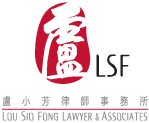Best Agriculture Lawyers in Macao
Share your needs with us, get contacted by law firms.
Free. Takes 2 min.
List of the best lawyers in Macao, Macao
About Agriculture Law in Macao, Macao
Agriculture in Macao, Macao has historically played a limited role compared to other economic sectors like tourism and gaming. Macao's compact urban landscape means that only a small percentage of land is available for agricultural activities such as market gardening, floriculture, and aquaculture. Nevertheless, the field is regulated and subject to local laws that touch on land use, food safety, environmental protection, and trade. Changes in consumer demand, environmental concerns, and international trade relations have increased the importance of clear legal frameworks for agriculture stakeholders in Macao.
Why You May Need a Lawyer
Even though Macao's agriculture sector is comparatively small, several situations may require legal guidance. Common scenarios include leasing or purchasing land for agricultural use, navigating zoning and land-use regulations, obtaining the proper permits for farming or aquaculture activities, addressing disputes over property rights or contracts, and ensuring compliance with food safety standards for locally produced or imported agricultural goods. Additionally, issues related to agricultural imports and exports, environmental compliance, and potential government subsidies or support programs may require legal interpretation.
Local Laws Overview
Macao operates under its own legal system, rooted in Portuguese civil law traditions and administered independently of mainland China. Key aspects of local agriculture laws include land use and zoning restrictions that tightly regulate how limited space can be used for farming or related purposes. Food safety regulations govern the production, processing, and importation of agricultural products, aligning with public health and international trade standards. Environmental protection laws impact agricultural practices, particularly those involving pesticides, waste, and water use. Additionally, regulations from entities like the Civic and Municipal Affairs Bureau (IAM) oversee market operations for local produce, certification of food products, and control animal health and plant protection standards.
Frequently Asked Questions
What kinds of agricultural activities are permitted in Macao?
Permitted activities typically include small-scale farming, flower cultivation, aquaculture, and limited animal husbandry, subject to land use and environmental rules.
Do I need a license or permit to start an agricultural business?
Yes, agricultural businesses usually require several permits or licenses from agencies such as the IAM and the Macao Trade and Investment Promotion Institute, covering business registration, health, and environmental compliance.
What legal restrictions exist on the use of land for agriculture?
Land zoning laws restrict agricultural uses to designated areas. Expansion or development of new farmland is strictly regulated, and conversion of land use requires government approval.
Are there incentives or subsidies for agricultural businesses in Macao?
Macao does not offer widespread subsidies for agriculture, but targeted support or grants may be available for innovation, technology adoption, or environmental initiatives. Legal advice can clarify eligibility.
What food safety standards must agricultural producers follow?
Food safety is governed by local laws, requiring compliance with regulations on pesticide use, hygiene, labeling, storage, and transportation. Imported agricultural goods are also closely inspected.
How are disputes over agricultural contracts resolved?
Disputes are typically resolved under Macao's civil law procedures, often involving negotiation, mediation, or litigation in the local courts.
Can foreign investors participate in Macao's agriculture sector?
Yes, foreign investors can participate, but they must comply with local business, land use, and investment regulations. Certain limitations may apply, and professional legal guidance is recommended.
What environmental regulations affect agriculture?
Agricultural activities are subject to laws aiming to protect water quality, restrict pollution, and manage waste and pesticide use. Environmental permits may be required.
How can I export or import agricultural products to or from Macao?
Import and export of agricultural products require compliance with customs, health, and quarantine regulations. Different permits and certificates may be needed depending on the product.
Who enforces agricultural laws in Macao?
Primary enforcement falls to the Civic and Municipal Affairs Bureau (IAM), with other agencies involved as relevant to land, trade, or environmental matters.
Additional Resources
- Civic and Municipal Affairs Bureau (IAM): Oversees land use, food safety, and regulation of local agricultural activities. - Macao Trade and Investment Promotion Institute: Provides guidance on business setup and investment. - Macao Environmental Protection Bureau: Offers information on permits and environmental compliance. - Local agriculture associations and chambers of commerce: Can provide industry insights and advocacy. - Macao Legal Advice Service Centers: Offer free or low-cost initial consultations for legal questions.
Next Steps
If you need legal assistance in Macao's agriculture sector, start by clearly defining your issue or area of concern. Gather relevant documents and information about your intended activities or business plans. Reach out to a qualified legal professional with experience in agriculture, business, or property law specific to Macao. Consider consulting with regulatory authorities such as IAM to understand baseline requirements. If cost is a concern, look for public legal service centers or community organizations offering free or subsidized advice. A proactive approach will help you navigate regulations efficiently and avoid legal problems as you move forward in Macao's agricultural landscape.
Lawzana helps you find the best lawyers and law firms in Macao through a curated and pre-screened list of qualified legal professionals. Our platform offers rankings and detailed profiles of attorneys and law firms, allowing you to compare based on practice areas, including Agriculture, experience, and client feedback.
Each profile includes a description of the firm's areas of practice, client reviews, team members and partners, year of establishment, spoken languages, office locations, contact information, social media presence, and any published articles or resources. Most firms on our platform speak English and are experienced in both local and international legal matters.
Get a quote from top-rated law firms in Macao, Macao — quickly, securely, and without unnecessary hassle.
Disclaimer:
The information provided on this page is for general informational purposes only and does not constitute legal advice. While we strive to ensure the accuracy and relevance of the content, legal information may change over time, and interpretations of the law can vary. You should always consult with a qualified legal professional for advice specific to your situation.
We disclaim all liability for actions taken or not taken based on the content of this page. If you believe any information is incorrect or outdated, please contact us, and we will review and update it where appropriate.









